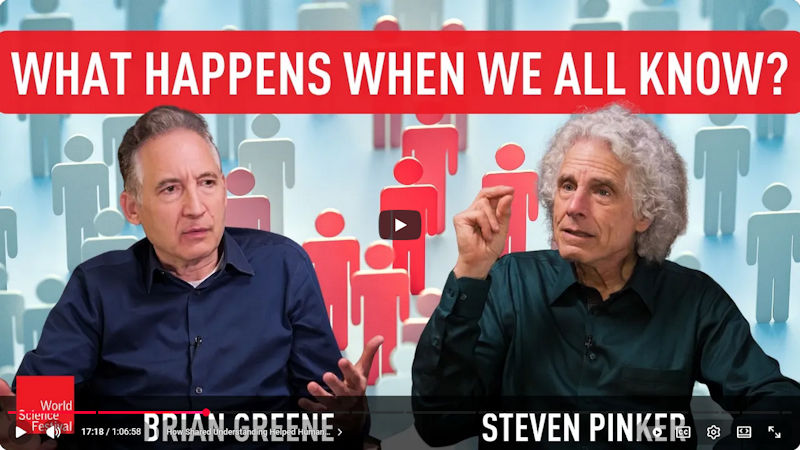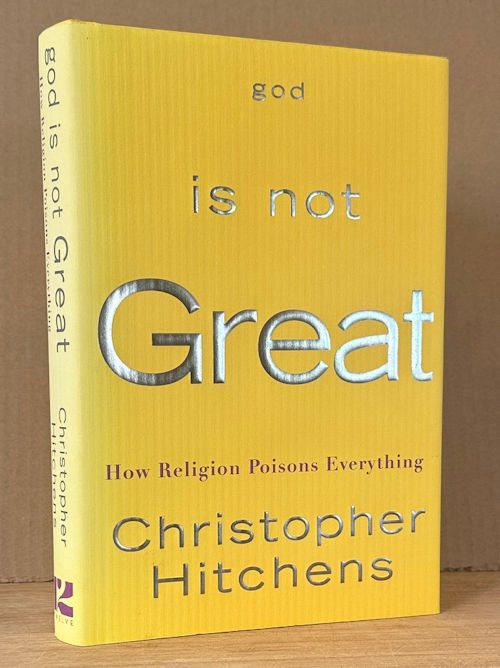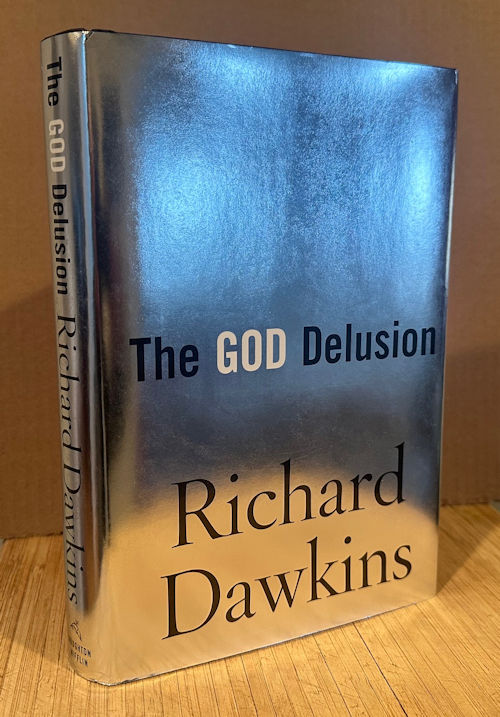- A conversation between Brian Greene and Steven Pinker, two of the current greatest scientists/writers;
- Heather Cox Richardson on how Trump “cares,” and his “piggy” comments;
- Briefly noted items about how the GOP destroys, not builds; how the Trump administration uses bogus math; Christian nationalism and football games; and how conservatives discover new “rights” to take down Obergefell.
I have said before that in our modern age knowledge of the world is available to every person, in great detail, in books and in videos and on websites like Wikipedia, and how they comprise detailed understanding of the world far beyond anything captured in the ancient holy books. And there are podcasts, including those by many of the great nonfiction writers of our time. Here’s an example, which popped up on Fb today.
YouTube: What Happens When We All Know? | Brian Greene & Steven Pinker












